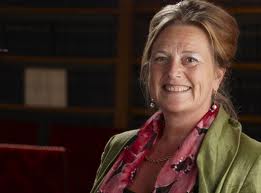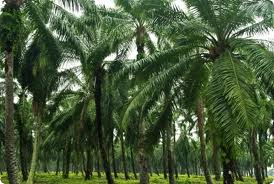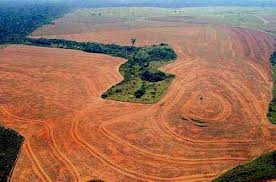
Sustainability is growing in importance for the biobased economy, says Patricia Osseweijer. She is a professor in Science Communication at Delft Technical University, and she heads among others the Biotechnology and Society research group. The growing importance of sustainability shows, for instance, in the share of sustainability related projects in the Biobased Economy theme in Dutch innovation policy. Companies increasingly pay attention to sustainability in their strategies. And academic institutions, too, increasingly have to account for their actions.
No non-commital answers any more
‘Companies and institutions increasingly have to meet targets when they commit themselves to sustainability. All results will have to be specified, quantitative goals need to be set and met. Whereas in the past, a careful process (transparency) was the main aim, nowadays the outcome, the result, is of prime importance. That holds true for research institutes as well; therefore, these have to move forward their ‘design checkpoints’ in the domain of sustainability. Formerly, researchers checked in the end whether the outcome was sustainable, nowadays this question needs to be addressed on beforehand, for instance by application of the principles of green chemistry.’
The twelve principles of green chemistry were developed in the nineties by Paul Anastas and George Warner. They intend to prevent waste production from chemical processes, in particular toxic or mutagenic waste. Therefore, the maximum percentage possible of the initial reactants will have to end up in the final product, whereas reactions preferably take place at normal temperature and pressure, at which they require the least amount of energy. Chemists must also be aware that products will end up in the environment at the end of their lifetimes; there, they should be broken down to harmless substances.
Careful choice of partners
Through research program BE-Basic, Patricia Osseweijer is involved in the development of the biobased economy in Malaysia, Vietnam, Brazil, Germany, and the USA. Within BE-Basic she heads the ‘Societal embedding of a biobased economy’ program, which investigates the aspects concerning sustainability and the social sciences. We choose our partners carefully, she says. As criteria she mentions the availability of a reasonably good infrastructure, the expectation of the project to add value to the partners, and a good technological cooperation.

‘In Malaysia we initiated a consortium with international institutes and corporations. The business plan is aimed at a sustainable use of biomass. We do not only supply technological knowhow to the program, but also knowledge of soil conditions and sustainability. The latter does not merely relate to the way the plantation is designed and managed, but to all other processes as well. Many social questions are involved relating to the setup. An important questions which comes up again and again is the required scale of operations. Should we design the operations at a large scale, or with every mill? What are the consequences of each solution for infrastructure, economy, employment, and local well-being? Infrastructure is very important for a country’s development. For instance, for food security. A good infrastructure can improve the sales market for farmers, and thus help develop wealth for them; it can also improve access to (affordable) food.’
Thirty years of bioeconomy
‘In Brazil, cooperation is very different. They have had a bioeconomy for thirty years already. Sustainability is important there, too. Our common research budget amounts to $ 4 million for 4 years. Of which a large share is devoted to sustainability. Brazil enlightens us, too. There, we can investigate in real life the importance of local and regional development, employment, and sustainability criteria for the development of bioenergy.’

‘Brazil now embarks on a scheme for biodiesel production from soy. The Brazilian soy acreage is about three time as large as the acreage devoted to sugar cane. Moreover, it lies closer to the rainforest, and often, tilled rainforest is transformed directly into soy plantations. Therefore, this sector is more vulnerable for infringement on sustainability criteria. The Brazilian authorities now try to prevent the large-scale tilling of the rainforest, among others by imposing a minimum percentage of smallholder farmers in soy production; they made their subsidies dependent on that criterion. This scheme is well under way now. We investigate whether this model can be applied to other countries. In a subproject, André Faaij (Copernicus Institute, Utrecht University) investigates the influence of bioenergy production in Brazil on biodiversity and food security. We do this research in direct cooperation with academic institutes in Brazil.’
Backcasting for sustainability
We also cooperate in a major international ‘Global Sustainability Bioenergy project’ headed by Lee Lynd of the Thayer School of Engineering in Dartmouth (New Hampshire, USA). One of the questions in his investigation is the need for bioenergy: do we really need it, or can we use other energy systems instead? His conclusion is that we need biofuels in the short and middle term, and he investigates whether there is enough land available to produce it. It is a very large project, in which also OECD and IEA participate, among others. The program relates the main question to food security, double cropping, several diets, etc. From these findings the researchers reason backwards to the question what sustainability should be like, right now. A special project, as discussion and experiment come together here.’
‘Our group mainly investigates the social aspects of sustainability, the so-called soft impacts. Among others, we perform perception research in different cultures. What are the values people hold, and how do they reflect on the view on sustainability in this culture? We look into three qualitative aspects: social and ethical aspects; the question whether these are correctly applied in the design of industrial processes; and the communication on these subjects, in which we try to establish effective and efficient designs. For instance, we look into the part emotions play. In some countries, like Malaysia, it is not easy to fathom people’s opinions. It is a very hierarchically oriented country. But Malaysian companies hold a positive view on our initiatives. And central government in Malaysia is strong enough to enforce sustainability agreements. Two important factors in deciding whether or not to be active in that country.’
